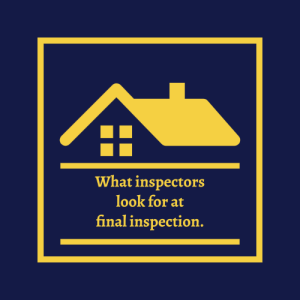As the City of Naples area begins the process of cleaning up and rebuilding after the recent flooding and high wind event, the City of Naples Building Department wants to remind property owners and residents of several basic repair rules.
1. Permits are required for most repair work to your damaged home or structure.
2. Contractors, including but not limited to electrical, mechanical, plumbing and roofing contractors making repairs to your home must have a valid license and permit.
3. It is recommended that you get (3) bids and review them carefully.
4. Homeowners can apply for permits with certain restrictions – for more information on owner/builder permits please contact the City of Naples Building Department at 239-213-5020.
5. All buildings located within a Special Flood Hazard Area should contact the Floodplain Coordinator at 239-213-5039 before making any repairs, otherwise your permit may be delayed without the proper paperwork.
Repair Permit Guidelines
Permits are NOT REQUIRED for: Tarping, Painting, Tiling, Carpeting, Minor Removal of Drywall and Baseboards no more than 4’ above the floor will not require a permit. Roof covering repairs that do not exceed 500 square feet is allowed without a permit.
Permits ARE REQUIRED if your home or structure suffered any structural damage such as walls being moved or knocked down or a roof collapse. Permits ARE REQUIRED for complete re-roofing, doors, and windows and interior repairs and replacements except as stated below.
Electrical Repairs: All electrical repair work requires a permit, except replacement of fixtures and outlets/devices does not require a permit. All new electrical work REQUIRES a permit and must be completed by a licensed electrical contractor.
Mechanical Repairs: Permits ARE REQUIRED for replacing units, relocating units, installing/replacing ductwork.
Plumbing Repairs: Permits ARE REQUIRED for all new plumbing work. Replacing fixtures does not require a permit.
How and Where to Get a Building Permit
In Person:
City of Naples Building Department
295 Riverside Circle
239-213-5020
Online:
https://cityview2.iharriscomputer.com/CityofNaplesFlorida/Account/Logon
CITY OF NAPLES: POST HURRICANE INFORMATION
What does it mean when a posted unsafe is posted on a property? If a sign with posted unsafe has been posted on a structure, the structure has been inspected by a City Official and has been deemed to be unsafe for occupancy. ONCE REPAIRS ARE MADE, THE UNIT CAN BE OCCUPIED. Until the building has determined to be safe the property may only be entered for the purpose of removing personal property and/or making the property safe. Contact the building official 239-213-5008.
What Makes a Property Unsafe? A property is considered unsafe if the interior of the structure is exposed to the elements, if the carpets or floors are flooded, ceilings or walls are wet and/or the structure is structurally unsound.
How should Pools where the Screen Cage has been damaged or destroyed be protected? Screen Enclosures with 25% or more damage should be completely removed. Screen enclosures may be demolished without a permit. Once a screen enclosure has been removed from a pool, the pool should be protected with a barrier. This can be done with an approved fence or screen enclosure. Chain link fencing can be installed, temporarily, to protect the pool. If permanent pool barriers are installed, they should be at least 4 feet high, on the outside, with a self-closing, selflocking, gate or door, with a latch that is at least 54 inches high. If permanent fencing or a screen enclosure is installed, it must be permitted by a licensed contractor or an owner builder who meets the requirements of the City Ordinance.
What are the requirements for replacing exterior openings? If only the GLASS is replaced, it may be replaced with like materials, without a permit. If the entire window unit (glass and frame) is replaced, it must meet the current codes for wind and impact. * In a single family home, if less than 25% of the opening areas are being replaced, the impact requirement is not applicable. A permit is required to replace window units and to install shutter systems.
Repair Work: Residential single family, 2 family, Commercial, and Condo’s: Tarping, Painting, Tiling, Carpeting, Minor Removal of Drywall and Baseboards no more than 4’ above the floor a permit will not be required. Roofing repair work can be performed without a permit for up to 500 sf of repairs. The contractor making the repair must be licensed to work in the City of Naples. The contractor shall submit after the work is completed a scope of work along with an affidavit attesting that the Roof sheathing has been re-nailed to the current 2020 7th edition Florida Building Code and that the secondary water barrier has been put in place. This affidavit must list the Contractor’s license number the date and time it was inspected and be notarized. Once completed please have the affidavit dropped off or emailed to the City of Naples Building Department. All roof repairs over 500 sf must be permitted. All roofing permits will be expedited.
What types of Temporary Sign Replacements are allowed? If an electric sign has been damaged and the frame (or can) is still present, a business owner may cover it with a banner sign or plywood sign. If a non-electric sign has been damaged it may be replaced with a 4ft. x8ft. or 32 sq. ft. ground sign.
How can I choose a Contractor? If property owners use contractors to perform any work, they should check to make sure the contractor is properly licensed. All contractors performing work in City of Naples must register with Collier Co. Contractor Licensing and provide proof of liability and worker’s compensation insurance. Some contracting trades do not require a license. Please call Collier Co. Contractor Licensing at 239-252-2431, for more information
Courtesy : City of Naples







